Hydrogen Car: Working Principle, Advantages, and Disadvantages
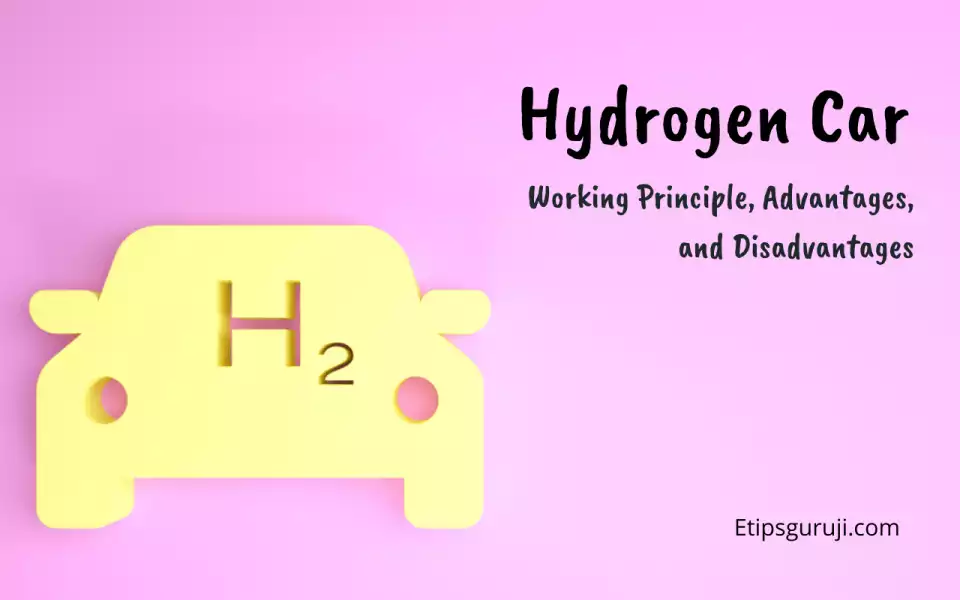
Hydrogen is one of the abundant elements that we have access to on the earth, making it suitable to consider for fuelling our cars. Besides, many scientists argue that it is the future fuel as rockets also run on Hydrogen fuel technology.
Although the first successful engine working on hydrogen energy came in 1806, hydrogen cars are still not prominent in the automobile industry. Wondering Why?
Well! Let’s understand the associated facts and figures around Hydrogen Cars.
What are Hydrogen Cars?
Any car that utilizes Hydrogen gas(H2) as its primary fuel source to produce motive power is essentially a Hydrogen-driven Car (the same goes for other automobiles). These cars run on two variations of hydrogen engines, namely,
H2ICE (Hydrogen-gas Internal Combustion Engine); which uses hydrogen to produce energy via combustion process (like diesel and petrol), and Fuel Cell powered engines where the Fuel cell of hydrogen and oxygen creates electricity via chemical reactions to charge an electric battery.
The first hydrogen engine ever built was around 200 years ago by the famous Paris-born scientist Francois Isaac de Rivaz in 1806. After successfully inventing a hydrogen-fuelled engine, he further designed an experimental vehicle driven by hydrogen gas in the very next year, 1807. Since then, many companies have manufactured cars based on the H2ICE and FCEV (Fuel Cell Electric Vehicles) approaches.
Examples of H2ICE cars are Mazda Hydrogen RE Plug, Chevrolet Silverado (2010), BMW H2R (2007), Ford Super Chief, and BMW Hydrogen-7.
Examples of FCEVs cars are Toyota Mirai, Honda Nexo, Mercedes Benz F-Cell, and Fiat Panda.
How Does a Hydrogen Car Work?
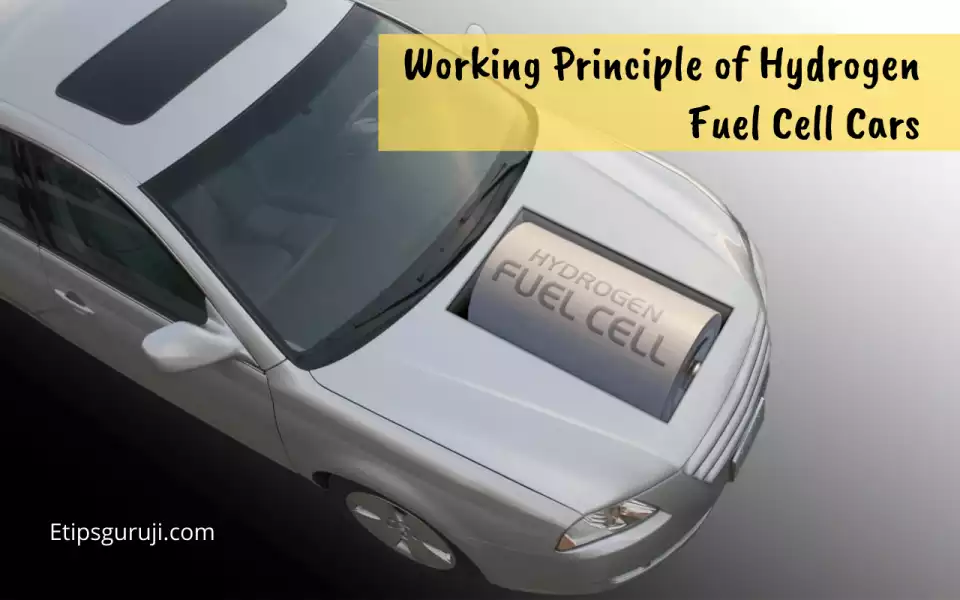
The working of the hydrogen is solely based on the efficient utilization of the Hydrogen gas, but it also involves other essential aspects. Taking into account both the types of Hydrogen cars, here is how these cars produce their motive energy.
H2ICE Cars
The hydrogen-based Internal combustion engines are basically similar to the usual petrol or diesel ones. These engines use a similar combustion engine by replacing the petrol with hydrogen in the cylinder-piston mechanism.
- The compressed hydrogen gas and oxygen gas travel to an ignition chamber.
- The spark generated starts the reaction of converting these gases into water, heat, and energy.
- This combustion energy pushes the cylinder into the central chamber, commencing the motion of the car parts.
Read More:
- Why Is My BMW App Not Working? With Simple Solution
- Are Hydrogen Cars Better than Electric Cars? Why Should You Buy a Hydrogen Car?
- Airbag Helmet: Working and Is it Worth Buying?
FCEV Cars
In Fuel-Cell Electric Vehicles, hydrogen & oxygen work to produce the electricity via the Fuel Cell apparatus. Another point to focus on is that here cars create their own electricity using hydrogen as a fuel as opposed to the conventional electric vehicles taking energy from outside.
- The hydrogen gas, compressed and stored in cylinders fitted in the car, travels to the fuel cell.
- There is a cell barrier that holds hydrogen and oxygen gas on opposite sides.
- They both produce electrons and protons, where photons are absorbed, and electrons travel to the battery.
- The battery gets charged in this process, providing the motive energy to run the car.
Why is it Hard to Build a Hydrogen Car?
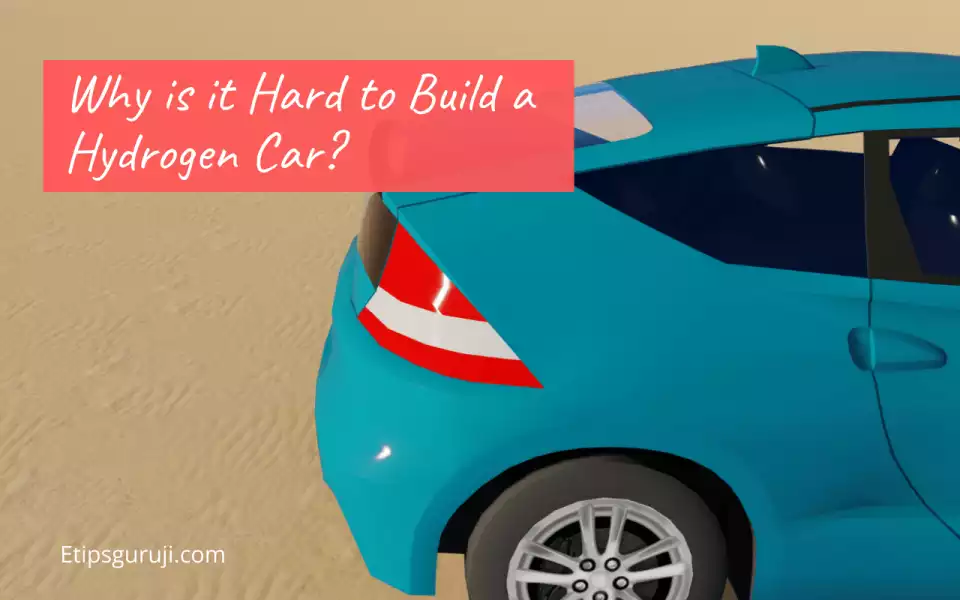
Despite the numerous efforts made since the 1800s to use hydrogen gas as the primary source of fuel for cars, we haven’t yet succeeded.
In particular, manufacturing a hydrogen car is relatively easy but sustaining it for efficient and long-term use is the real challenge. We have mentioned a few reasons below, highlighting the problems with hydrogen cars.
1. Expensive Alternative
The buyer researching the market for purchasing a new car will always be inclined to a cheaper option.
The hydrogen car might sound like an exciting concept, but the customer needs the best deal that hydrogen cars cannot provide at present.
Hence, it is hard for companies to build a hydrogen car which will eventually cause loss.
2. Fuel Storage Tank Unit is a Problem
Hydrogen gas needs a proper and well-built infrastructure to make its storage and transportation efficient.
Storing the liquified gas is a difficult & expensive process, another hindrance in building the cars based on hydrogen fuel
3. Volume and Weight
The average storage system of hydrogen cars is bulky and has higher weights with large volumes. It makes the hydrogen cars a bit less efficient when compared to their competitors.
Hence, it still requires thorough research and testing to successfully and commercially use hydrogen gas in our daily commuting.
4. Codes & Standards
The concerned vehicle authorities have not yet produced the official standards for building a hydrogen car.
The manufacturing process might reshape after the introduction of permanent codes and standards. Thus, it is still hard to decide the limits and guidelines to follow and not mess up with the products.
Advantages of Hydrogen Car
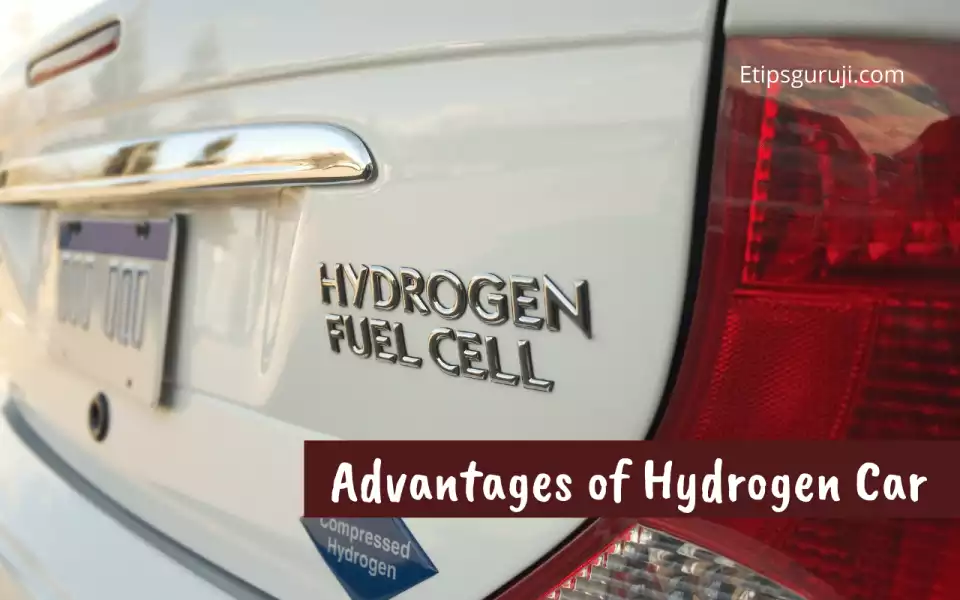
The use of hydrogen as fuel became prevalent in the first decade of 2000 as many companies launched their prototypes or concept vehicles. Here are the benefits they realized and started testing in this domain.
1. Green Alternative – No Harmful Emissions
Many experts claim that the hydrogen-fuelled car is the real environment-friendly solution for today and the future.
It literally produces water and energy as a bi-product in the Fuel Cell Electric Vehicles (FCEVs). Moreover, there is no carbon dioxide or smoke that can pollute our ecosystem.
2. Runs on a Renewable Source of Energy
The main problem of the automobile industry is the fossil-based fuel which is possibly going to vanish in the coming years.
On the contrary, hydrogen is the renewable energy source with immense abundance on the earth; it will persist forever, fuelling our cars for time immemorial.
3. Fast Refuelling
If you have to compare the refueling capability of the hydrogen cars at the station, they are marginally quicker than battery vehicles. Moreover, the refueling time is similar compared to the fuel (diesel or petrol) cars.
4. Fuel is Readily Available
Hydrogen is the most abundant element in the universe and on the earth, where water is almost two-thirds. Hydrogen indeed takes a lot of energy to extract from the water, compress, then store.
However, it is still available in large volumes and will be a practical green solution if we could somehow find an easy way to extract and utilize it.
5. Efficient and Powerful
The fact that rocket fuels are essentially hydrogen-based proves that hydrogen fuel can do wonders in the car industry if used efficiently. Hydrogen will make it possible to enjoy power, efficiency, and eco-friendliness all at the same time.
Disadvantages of Using Hydrogen as Fuel
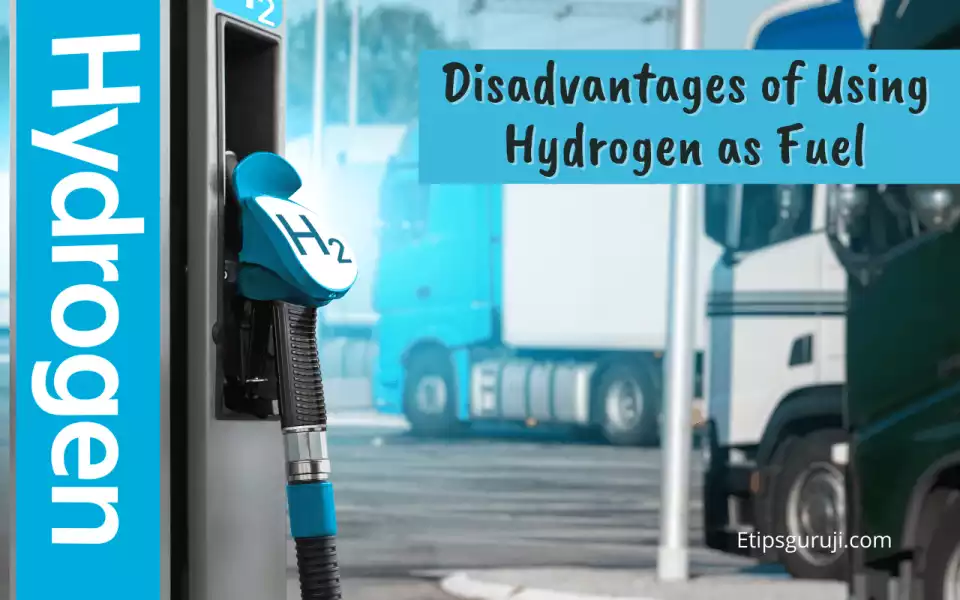
In general, the use of hydrogen makes it a perfect alternative to present-day fuel options, but we should also be aware of its setbacks.
Firstly, hydrogen is an expensive fuel because of no present technology to extract it efficiently from sources like water. It costs much higher than conventional fuel.
Secondly, hydrogen gas is a highly flammable gas, making it a powerful fuel, but it can cause serious damage on mishandling. The safety factor might be the problem when we talk of using hydrogen as a daily commuting fuel.
Thirdly, hydrogen is not as efficient in cars as the other electric batteries are nowadays. The availability of hydrogen is not the problem, but it’s the accessibility because we have to extract it from the water, compress, and then use it.
Fourthly, it is hard to establish refueling stations all across the world, a highly demanding task to replace fossil fuel sources in the current scenario.
Is Toyota making a Hydrogen Car?
Toyota automobile company has been working for years to manufacture a stable and reasonably-priced hydrogen car. The company made many demonstration models of Hydrogen cars, including the Toyota FCHV-3, Toyota FCHV-4, etc.
Apart from these testing projects, they also introduced their first commercial car, named Toyota Mirai (2015). Further, they launched the Toyota Mirai II in 2020, and the Mirai series works on Fuel Cell technology.
Now, it is evident that they are onto their next generation of Toyota Mirai, which should be better in efficiency and pricing than its predecessors.
Why does Elon Musk not like Hydrogen as a Fuel Alternative for Future Cars?
Elon Musk, CEO of Tesla Motors, does not support the idea of using Hydrogen fuel cells.
His reasons for “hydrogen fuel cells are extremely silly”, is that it is unproductive and inefficient to make hydrogen gas from nature. The process of splitting water, extracting hydrogen, compressing it to extremely high pressure, and storing it to produce electricity in cars is half the efficiency when you use solar cells to make electricity.
His other concerns include its low density, high flammability, pernicious (harmful) behavior, and causes metal embrittlement. The present-day efficiency of the battery is better than the best possible efficiency of the hydrogen fuel cell.
Read More:
